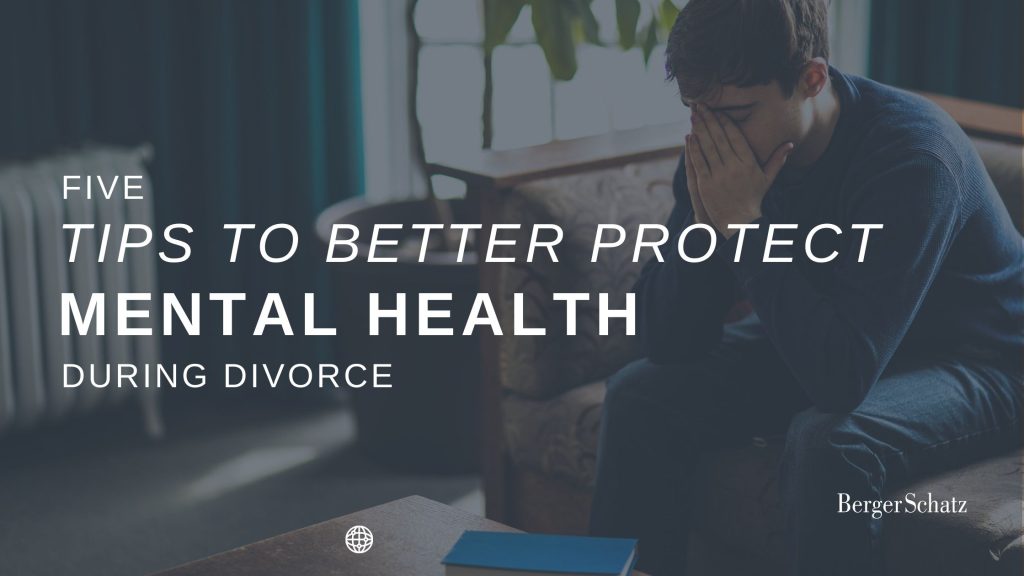
It’s no secret that divorce takes a toll on your mental and physical health. Throughout the divorce process you may experience various emotions like; fear, relief, happiness, and sadness to name a few.
Taking care of your mental health during the divorce process is crucial. We strive to connect with our clients on an emotional level, to better understand their needs, insecurities, and goals.
As May concludes Mental Health Awareness Month, we’re sharing with you five ways you can better protect your mental health during a divorce.
Allow yourself to feel all emotions
When going through the stages of divorce, it’s inevitable that you will be flooded with various emotions. You may feel angry, sad, relieved, ashamed, or lonely to name a few. It’s important that you don’t suppress those emotions, instead you allow yourself to fully feel them. Getting over a divorce does not happen overnight. Grieving a divorce is much like grieving the loss of a loved one. This process can be painful, but coping strategies like seeking outside professional support, establishing a strong routine, and giving yourself grace can help you move on, according to Psych Central.
Take care of your physical wellbeing
When stressful times arise, it’s easy to fall into bad habits. Nutrition and exercise are oftentimes one of the first things that fall to the wayside. When you consume nutrient dense foods, you are less susceptible to mood fluctuations, energy crashes, anxiety and depression, and much more. Eating a balanced and healthy diet also contributes to positive gut health – and your brain can react to signals from your stomach, according to Mental Health America.
Pairing a healthy diet with exercise can also positively impact your mental health. We all know the physical benefits of exercise, however, exercise also improves your psychological health. According to Mayo Clinic, as little as 30 minutes of exercise three to five days a week can improve your mood and reduce anxiety and depression.
Surround yourself with a strong support system
Divorce can feel like an isolating process. It’s important to surround yourself with a strong support system. This support system can consist of family members, close friends, professional help, all in which provide you with comfort and care. Seeking support from those who are uplifting and supportive, can help care for your emotional wellbeing.
Seek professional support
Professional therapy has benefited many of our clients. Therapy is an opportunity to share emotions with an unbiased third party. It provides our clients with strategies and tools to manage their emotions in healthy ways. Therapy can help prepare our clients to healthily transition into this new phase of their lives.
Embrace activities and hobbies that are an emotional relief
Use this time of separation as an opportunity to really get to know yourself. Reconnecting with activities you enjoy, outside of your spouse, can help prepare you for this life transition, according to Mental Health America. Ask yourself questions like; what are my hobbies, what are my interests, what are my passions. Once you identify what those are, spend your time doing more of them.
Taking care of your mental health is always important, especially during major life events like a divorce. These simple tips can better protect and strengthen your mental health if you find yourself going through a divorce.
To inquire about our services visit bergerschatz.com/contact
Sources:
Mental Health America, Fitness 4Mind4Body: The Gut-Brain Connection
Mental Health America, Coping With Separation and Divorce
Mayo Clinic, Depression and Anxiety: Exercise Eases Symptoms
Mayo Clinic, Healthy Lifestyle: Stress Management
Psych Central, Understanding Divorce Grief